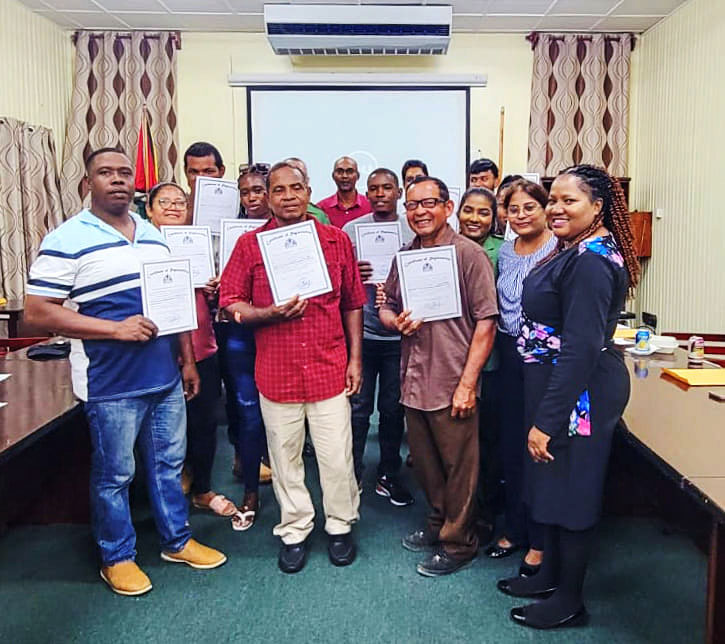In a speech delivered yesterday via his Facebook page, President Irfaan Ali revealed that his administration had granted more than 150 small and five large forestry concessions, along with various initiatives aimed at enhancing productivity and investment in the sector. These initiatives involved eliminating VAT on machinery and equipment, offering tax concessions for All-Terrain Vehicles, reversing VAT on exports, and lowering taxes for travel to hinterland areas. The President also mentioned that the government modified the log export policy, allowing more exports, which has further stimulated industry growth.
Ali pointed out that a primary government initiative is the promotion of Guyana’s Timber Legality Assurance System (TLAS), with hopes that the first licence under the European Union’s Forest Law Enforcement, Governance, and Trade (FLEGT) Programme will be granted by 2026. The government has prioritized financial assistance for local forestry businesses, with 13 individuals receiving $296 million from a $900 million revolving fund aimed at improving production and value-added activities. According to Ali, these initiatives have resulted in a rise in the sector’s output, which has now surpassed $15.6 billion since 2020.
Ali also stated that over 550 small-scale foresters operate across 2.5 million hectares, while 22 medium-scale operators oversee an additional 2.7 million hectares of land. The sector now employs more than 25,000 individuals. He also mentioned that the government had resolved the financial issues faced by the Guyana Forestry Com-mission (GFC) under the previous administration, clearing its debts to ensure ongoing operations.
The speech was apparently aimed at underscoring the development achieved by the current People’s Progressive Party/Civic (PPP/C) government in the forestry sector, while also discussing future objectives for continued development. However, Ali also dedicated 10 minutes to evaluating the APNU+AFC administration’s record, especially regarding the sector’s expansion and investment.
The President expressed that the APNU+AFC administration’s management of the forestry sector was inadequate. He criticized the former government for compelling companies like Baishalin International Forest Deve-lopment Inc and Barama Company Limited to exit the industry due to insufficient investor incentives and the imposition of onerous fees. The President further pointed out the neglect of vital infrastructure, such as hinterland roads, which he claimed hindered the development of the sector.
Ali also indicated that under the previous government, total production within the sector fell from 500,000 cubic meters in 2015 to below 400,000 cubic meters by 2020. Forestry product exports decreased by over 35%, dropping from US$53 million in 2014 to US$34 million in 2019. Additionally, the President highlighted that employment within the sector fell from over 22,000 in 2015 to around 14,000 in 2020.
The former government was also reproached by Ali for implementing significant fee increases on small and medium-scale loggers. He referenced the Amer-indian Loggers Associa-tion, noting that their fees surged by 118%, escalating from $415.8 million in 2014 to $910 million in 2019. Moreover, the Presi-dent stated that the GFC’s surplus plummeted from $211 million in 2014 to a mere $2.3 million in 2019, leading to financial challenges for the commission, including difficulties in compensating staff and service providers.









